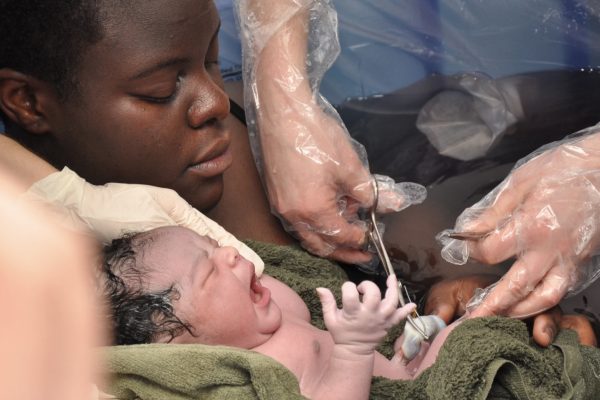Racial inequities in postpartum pain evaluation and management are longstanding. Black patients report more severe pain after birth compared to White patients. Yet, Black patients receive fewer pain assessments and fewer medications. Prior research using clinical vignettes suggests several ways that clinicians’ biases could lead to racial inequities in pain treatment.
- First, clinicians who endorse false stereotypes about Black people (e.g., that Black people’s pain is less severe than White people’s pain) or are unable to easily recognize pain on Black patients’ faces may do a worse job than clinicians without such biases at diagnosing and treating Black patients’ pain.
- Second, clinicians who have spontaneous negative feelings toward Black people may do a worse job communicating with patients, gathering important diagnostic information, or earning Black patients’ trust.
However, researchers have yet to test these proposed mechanisms using data from real-world clinical settings. Further, there is little to no data about how clinicians themselves understand the role of racial bias in pain treatment. Without such knowledge, it will be difficult to develop evidence-based interventions to remedy racial inequities in postpartum pain evaluation and management.

Principal Investigator: Tiffany Green, PhD
Co-Principal Investigator: India Anderson Carter, MD
Our Research
Our team addresses this bench-to-clinic knowledge translation gap by examining whether and how clinician bias contributes to Black-White inequities in postpartum pain evaluation and management. Despite being a primary theoretical explanation for racial inequities in postpartum health, establishing links between racial bias and postpartum pain outcomes has been largely prevented by data limitations. To overcome these obstacles, we are piloting a novel data collection approach in a Madison, WI labor and delivery unit.
First, clinicians caring for postpartum patients will take a self-administered survey. These survey data, which will include bias measures, will be linked with electronic medical record (EMR) data from White and Black postpartum patients who received treatment from these same clinicians. Next, the project team will conduct interviews with clinicians on their perceptions of how racial bias plays a role in pain treatment inequities, in general. Together, these approaches will provide one of the first real-world assessments of whether and how clinician bias shapes racial inequities in postpartum pain evaluation and management. The aims are to:
- Aim 1: Quantify the associations between clinicians’ biases and Black-White inequities in postpartum pain evaluation and management.
- Aim 2: Explore clinicians’ views on how racial biases influence pain evaluation and management processes among clinicians in general.
Project Status
In January 2026, we will launch our Wisconsin Partnership Program funded project examining disparities in postpartum pain treatment among Black and White birthing people in Dane County, Wisconsin. Stay tuned!
The successful completion of this pilot project will provide Wisconsin clinicians and Black birthing people with important new information on whether and how clinician bias shapes Black-White inequities in postpartum pain evaluation and management.
Our long-term goal is to develop interventions that reduce the prevalence of unmanaged postpartum pain among Black patients. Although our findings will be most applicable to Black patients, they will also provide important new information for future work on pain-related inequities among non-Black patients who also experience inequities – including Hispanic, indigenous, and other minority groups.
Where are the patient voices in this research?
We are working hard to obtain additional funding to include vital patient voices in this work. To date, we have submitted three grant proposals that center Black birthing peoples’ experiences and preferences.
We have proposed a mixed-methods study, where we would both survey and interview postpartum Black on their perceptions of clinician bias, satisfaction with and preferences around pain treatment, and clinician-patient communication quality.
If you are a funder who is interested in learning more, email us at reproequityactionlab@wisc.edu

Learn more about our past work on racial inequities
Implicit and explicit racial prejudice among medical professionals: Updated estimates from a population-based study
Demographic characteristics explained racialized prejudice among physicians, but not fully among non-physician healthcare workers.

Rethinking bias to achieve maternal health equity: Changing organizations, not just individuals
In this article, we address the limitations of existing implicit bias interventions as a strategy for achieving maternal health equity.

Racial disparities in intrapartum care experiences and birth hospital characteristics
While all birthing people are entitled to person-centered care, in practice, Indigenous and Black birthing persons are more likely than their White counterparts to endure negative intrapartum experiences.

Racial disparities in post-operative pain experience and treatment following cesarean birth
This study evaluated racial disparities in post-operative pain management following cesarean births, revealing that non-Hispanic Black and Hispanic birthing persons reported higher pain scores compared to non-Hispanic White counterparts.













